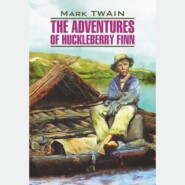По всем вопросам обращайтесь на: info@litportal.ru
(©) 2003-2025.
✖
Mark Twain's Speeches
Настройки чтения
Размер шрифта
Высота строк
Поля
Tammany And Croker
Mr. Clemens made his debut as a campaign orator on October 7, 1901, advocating the election of Seth Low for Mayor, not as a Republican, but as a member of the “Acorns,” which he described as a “third party having no political affiliation, but was concerned only in the selection of the best candidates and the best member.”
Great Britain had a Tammany and a Croker a good while ago. This Tammany was in India, and it began its career with the spread of the English dominion after the Battle of Plassey. Its first boss was Clive, a sufficiently crooked person sometimes, but straight as a yard stick when compared with the corkscrew crookedness of the second boss, Warren Hastings.
That old-time Tammany was the East India Company’s government, and had its headquarters at Calcutta. Ostensibly it consisted of a Great Council of four persons, of whom one was the Governor-General, Warren Hastings; really it consisted of one person – Warren Hastings; for by usurpation he concentrated all authority in himself and governed the country like an autocrat.
Ostensibly the Court of Directors, sitting in London and representing the vast interests of the stockholders, was supreme in authority over the Calcutta Great Council, whose membership it appointed and removed at pleasure, whose policies it dictated, and to whom it conveyed its will in the form of sovereign commands; but whenever it suited Hastings, he ignored even that august body’s authority and conducted the mighty affairs of the British Empire in India to suit his own notions.
At his mercy was the daily bread of every official, every trader, every clerk, every civil servant, big and little, in the whole huge India Company’s machine, and the man who hazarded his bread by any failure of subserviency to the boss lost it.
Now then, let the supreme masters of British India, the giant corporation of the India Company of London, stand for the voters of the city of New York; let the Great Council of Calcutta stand for Tammany; let the corrupt and money-grubbing great hive of serfs which served under the Indian Tammany’s rod stand for New York Tammany’s serfs; let Warren Hastings stand for Richard Croker, and it seems to me that the parallel is exact and complete. And so let us be properly grateful and thank God and our good luck that we didn’t invent Tammany.
Edmund Burke, regarded by many as the greatest orator of all times, conducted the case against Warren Hastings in that renowned trial which lasted years, and which promises to keep its renown for centuries to come. I wish to quote some of the things he said. I wish to imagine him arraigning Mr. Croker and Tammany before the voters of New York City and pleading with them for the overthrow of that combined iniquity of the 5th of November, and will substitute for “My Lords,” read “Fellow-Citizens”; for “Kingdom,” read “City”; for “Parliamentary Process,” read “Political Campaign”; for “Two Houses,” read “Two Parties,” and so it reads:
“Fellow – citizens, I must look upon it as an auspicious circumstance to this cause, in which the honor of the city is involved, that from the first commencement of our political campaign to this the hour of solemn trial not the smallest difference of opinion has arisen, between the two parties.
“You will see, in the progress of this cause, that there is not only a long, connected, systematic series of misdemeanors, but an equally connected system of maxims and principles invented to justify them. Upon both of these you must judge.
“It is not only the interest of the city of New York, now the most considerable part of the city of the Americans, which is concerned, but the credit and honor of the nation itself will be decided by this decision.”
At a later meeting of the Acorn Club, Mr. Clemens said:
Tammany is dead, and there’s no use in blackguarding a corpse.
The election makes me think of a story of a man who was dying. He had only two minutes to live, so he sent for a clergyman and asked him, “Where is the best place to go to?” He was undecided about it. So the minister told him that each place had its advantages – heaven for climate, and hell for society.
Municipal Corruption
Address at the city club dinner, January 4,1901.
Bishop Potter told how an alleged representative of Tammany Hall asked him in effect if he would cease his warfare upon the Police Department if a certain captain and inspector were dismissed. He replied that he would never be satisfied until the “man at the top” and the “system” which permitted evils in the Police Department were crushed.
The Bishop has just spoken of a condition of things which none of us can deny, and which ought not to exist; that is, the lust of gain – a lust which does not stop short of the penitentiary or the jail to accomplish its ends. But we may be sure of one thing, and that is that this sort of thing is not universal. If it were, this country would not be. You may put this down as a fact: that out of every fifty men, forty-nine are clean. Then why is it, you may ask, that the forty-nine don’t have things the way they want them? I’ll tell you why it is. A good deal has been said here to-night about what is to be accomplished by organization. That’s just the thing. It’s because the fiftieth fellow and his pals are organized and the other forty-nine are not that the dirty one rubs it into the clean fellows every time.
You may say organize, organize, organize; but there may be so much organization that it will interfere with the work to be done. The Bishop here had an experience of that sort, and told all about it down-town the other night. He was painting a barn – it was his own barn – and yet he was informed that his work must stop; he was a non-union painter, and couldn’t continue at that sort of job.
Now, all these conditions of which you complain should be remedied, and I am here to tell you just how to do it. I’ve been a statesman without salary for many years, and I have accomplished great and widespread good. I don’t know that it has benefited anybody very much, even if it was good; but I do know that it hasn’t harmed me very much, and is hasn’t made me any richer.
We hold the balance of power. Put up your best men for office, and we shall support the better one. With the election of the best man for Mayor would follow the selection of the best man for Police Commissioner and Chief of Police.
My first lesson in the craft of statesmanship was taken at an early age. Fifty-one years ago I was fourteen years old, and we had a society in the town I lived in, patterned after the Freemasons, or the Ancient Order of United Farmers, or some such thing – just what it was patterned after doesn’t matter. It had an inside guard and an outside guard, and a past-grand warden, and a lot of such things, so as to give dignity to the organization and offices to the members.
Generally speaking it was a pretty good sort of organization, and some of the very best boys in the village, including – but I mustn’t get personal on an occasion like this – and the society would have got along pretty well had it not been for the fact that there were a certain number of the members who could be bought. They got to be an infernal nuisance. Every time we had an election the candidates had to go around and see the purchasable members. The price per vote was paid in doughnuts, and it depended somewhat on the appetites of the individuals as to the price of the votes.
This thing ran along until some of us, the really very best boys in the organization, decided that these corrupt practices must stop, and for the purpose of stopping them we organized a third party. We had a name, but we were never known by that name. Those who didn’t like us called us the Anti-Doughnut party, but we didn’t mind that.
We said: “Call us what you please; the name doesn’t matter. We are organized for a principle.” By-and-by the election came around, and we made a big mistake. We were triumphantly beaten. That taught us a lesson. Then and there we decided never again to nominate anybody for anything. We decided simply to force the other two parties in the society to nominate their very best men. Although we were organized for a principle, we didn’t care much about that. Principles aren’t of much account anyway, except at election-time. After that you hang them up to let them season.
The next time we had an election we told both the other parties that we’d beat any candidates put up by any one of them of whom we didn’t approve. In that election we did business. We got the man we wanted. I suppose they called us the Anti-Doughnut party because they couldn’t buy us with their doughnuts. They didn’t have enough of them. Most reformers arrive at their price sooner or later, and I suppose we would have had our price; but our opponents weren’t offering anything but doughnuts, and those we spurned.
Now it seems to me that an Anti-Doughnut party is just what is wanted in the present emergency. I would have the Anti-Doughnuts felt in every city and hamlet and school district in this State and in the United States. I was an Anti-Doughnut in my boyhood, and I’m an Anti-Doughnut still. The modern designation is Mugwump. There used to be quite a number of us Mugwumps, but I think I’m the only one left. I had a vote this fall, and I began to make some inquiries as to what I had better do with it.
I don’t know anything about finance, and I never did, but I know some pretty shrewd financiers, and they told me that Mr. Bryan wasn’t safe on any financial question. I said to myself, then, that it wouldn’t do for me to vote for Bryan, and I rather thought – I know now – that McKinley wasn’t just right on this Philippine question, and so I just didn’t vote for anybody. I’ve got that vote yet, and I’ve kept it clean, ready to deposit at some other election. It wasn’t cast for any wildcat financial theories, and it wasn’t cast to support the man who sends our boys as volunteers out into the Philippines to get shot down under a polluted flag.
Municipal Government
Address at the annual dinner of the St. Nicholas society, New York, December 6, 1900.
Doctor Mackay, in his response to the toast “St. Nicholas,” referred to Mr. Clemens, saying – “Mark Twain is as true a preacher of true righteousness as any bishop, priest, or minister of any church to-day, because he moves men to forget their faults by cheerful well-doing instead of making them sour and morbid by everlastingly bending their attention to the seamy and sober side of life.”
Mr. Chairman and gentlemen of the st. Nicholas society, – These are, indeed, prosperous days for me. Night before last, in a speech, the Bishop of the Diocese of New York complimented me for my contribution to theology, and to-night the Reverend Doctor Mackay has elected me to the ministry. I thanked Bishop Potter then for his compliment, and I thank Doctor Mackay now for that promotion. I think that both have discerned in me what I long ago discerned, but what I was afraid the world would never learn to recognize.
In this absence of nine years I find a great improvement in the city of New York. I am glad to speak on that as a toast—“The City of New York.” Some say it has improved because I have been away. Others, and I agree with them, say it has improved because I have come back. We must judge of a city, as of a man, by its external appearances and by its inward character. In externals the foreigner coming to these shores is more impressed at first by our sky-scrapers. They are new to him. He has not done anything of the sort since he built the tower of Babel. The foreigner is shocked by them.
In the daylight they are ugly. They are – well, too chimneyfied and too snaggy – like a mouth that needs attention from a dentist; like a cemetery that is all monuments and no gravestones. But at night, seen from the river where they are columns towering against the sky, all sparkling with light, they are fairylike; they are beauty more satisfactory to the soul and more enchanting than anything that man has dreamed of since the Arabian nights. We can’t always have the beautiful aspect of things. Let us make the most of our sights that are beautiful and let the others go. When your foreigner makes disagreeable comments on New York by daylight, float him down the river at night.
What has made these sky-scrapers possible is the elevator. The cigar-box which the European calls a “lift” needs but to be compared with our elevators to be appreciated. The lift stops to reflect between floors. That is all right in a hearse, but not in elevators. The American elevator acts like the man’s patent purge – it worked. As the inventor said, “This purge doesn’t waste any time fooling around; it attends strictly to business.”
That New-Yorkers have the cleanest, quickest, and most admirable system of street railways in the world has been forced upon you by the abnormal appreciation you have of your hackman. We ought always to be grateful to him for that service. Nobody else would have brought such a system into existence for us. We ought to build him a monument. We owe him one as much as we owe one to anybody. Let it be a tall one. Nothing permanent, of course; build it of plaster, say. Then gaze at it and realize how grateful we are – for the time being – and then pull it down and throw it on the ash-heap. That’s the way to honor your public heroes.
As to our streets, I find them cleaner than they used to be. I miss those dear old landmarks, the symmetrical mountain ranges of dust and dirt that used to be piled up along the streets for the wind and rain to tear down at their pleasure. Yes, New York is cleaner than Bombay. I realize that I have been in Bombay, that I now am in New York; that it is not my duty to flatter Bombay, but rather to flatter New York.
Compared with the wretched attempts of London to light that city, New York may fairly be said to be a well-lighted city. Why, London’s attempt at good lighting is almost as bad as London’s attempt at rapid transit. There is just one good system of rapid transit in London – the “Tube,” and that, of course, had been put in by Americans. Perhaps, after a while, those Americans will come back and give New York also a good underground system. Perhaps they have already begun. I have been so busy since I came back that I haven’t had time as yet to go down cellar.
But it is by the laws of the city, it is by the manners of the city, it is by the ideals of the city, it is by the customs of the city and by the municipal government which all these elements correct, support, and foster, by which the foreigner judges the city. It is by these that he realizes that New York may, indeed, hold her head high among the cities of the world. It is by these standards that he knows whether to class the city higher or lower than the other municipalities of the world.
Gentlemen, you have the best municipal government in the world – the purest and the most fragrant. The very angels envy you, and wish they could establish a government like it in heaven. You got it by a noble fidelity to civic duty. You got it by stern and ever-watchful exertion of the great powers with which you are charged by the rights which were handed down to you by your forefathers, by your manly refusal to let base men invade the high places of your government, and by instant retaliation when any public officer has insulted you in the city’s name by swerving in the slightest from the upright and full performance of his duty. It is you who have made this city the envy of the cities of the world. God will bless you for it – God will bless you for it. Why, when you approach the final resting-place the angels of heaven will gather at the gates and cry out:
“Here they come! Show them to the archangel’s box, and turn the lime-light on them!”
China And The Philippines
At a dinner given in the Waldorf-Astoria hotel, December, 1900.
Winston Spencer Churchill was introduced by Mr. Clemens.
For years I’ve been a self-appointed missionary to bring about the union of America and the motherland. They ought to be united. Behold America, the refuge of the oppressed from everywhere (who can pay fifty dollars’ admission) – any one except a Chinaman – standing up for human rights everywhere, even helping China let people in free when she wants to collect fifty dollars upon them. And how unselfishly England has wrought for the open door for all! And how piously America has wrought for that open door in all cases where it was not her own!
Yes, as a missionary I’ve sung my songs of praise. And yet I think that England sinned when she got herself into a war in South Africa which she could have avoided, just as we sinned in getting into a similar war in the Philippines. Mr. Churchill, by his father, is an Englishman; by his mother he is an American – no doubt a blend that makes the perfect man. England and America; yes, we are kin. And now that we are also kin in sin, there is nothing more to be desired. The harmony is complete, the blend is perfect.
Theoretical And Practical Morals
The New Vagabonds Club of London, made up of the leading younger literary men of the day, gave a dinner in honor of Mr. and Mrs. Clemens, July 8, 1899.
It has always been difficult – leave that word difficult – not exceedingly difficult, but just difficult, nothing more than that, not the slightest shade to add to that – just difficult – to respond properly, in the right phraseology, when compliments are paid to me; but it is more than difficult when the compliments are paid to a better than I – my wife.
And while I am not here to testify against myself – I can’t be expected to do so, a prisoner in your own country is not admitted to do so – as to which member of the family wrote my books, I could say in general that really I wrote the books myself. My wife puts the facts in, and they make it respectable. My modesty won’t suffer while compliments are being paid to literature, and through literature to my family. I can’t get enough of them.

















